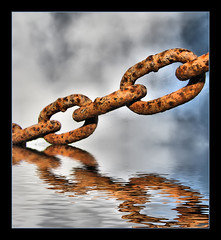by Michael Keizer on March 3, 2010
by Michael Keizer on January 20, 2010

Over at his blog Wanderlust, Tris Clements questions whether sending in SAR teams is the wisest way to spend our resources:
If, as is generally shown, SAR teams can only hit the ground after 48 hours, and are only saving a few dozen lives in any given reponse [sic], is this a worthwhile use of funding? Should the media continue to carry such high-profile stories and continue to justify this as the best way forward in an emergency? Had an additional 1,200 medical staff and equipment been flown in to Port-au-Prince instead, how many people could they have treated, how many life-threatening wound infections treated, how many shock-managing IV drips inserted, in the last three or four days? Thousands? Tens of thousands?
These are important and relevant questions. However, I think Tris leaves out an important part of the equation: why do we actually send out these SAR teams?
Part of it can be found in an intriguing comment in response to my blog post on the logistics of emergency response: commenter rob_s suggests to send local people involved in emergency preparedness in developing countries to disasters like Haiti earthquake, so they can learn from and experience firsthand the lessons learned.
This is exactly how many of the developed countries who have sent SAR teams think. It is not only altruism, or even a PR exercise, but also a valuable opportunity for these teams to train and learn, so they are better able to respond when something similar happens in their own countries. In that sense, one should add the lives saved by better preparedness in future disasters to the lives saved now; but it will be obvious that any estimate of how many lives we are talking about is no more than a guess, educated or otherwise.
Tris’ questions are still very relevant, and the answer is still likely to be that the resources spent on foreign SAR teams could be spent better elsewhere; but the arithmetic is a bit more complicated than he makes it out to be.
[Image: Fairfax County Urban Search and Rescue at Montana Hotel in Port-au-Prince, by Chuck Simmins. Some rights reserved.]
{


